Table of Contents
Top Places in Florida for RV Camping
Here are some of the top places in Florida for RV camping:
- Big Lagoon State Park: This state park is located on the Gulf of Mexico, and it offers beautiful views and plenty of opportunities for fishing, swimming, and kayaking.
- Everglades National Park: This national park is a must-see for any RV traveler! It is home to an incredible variety of wildlife, including alligators, crocodiles, birds, and more.
- Fort De Soto County Park: This county park is located on Florida’s Gulf Coast and it offers stunning beaches, fishing piers, nature trails, and more.
These are just a few of the many great places to go RV camping in Florida! So if you’re looking for some sunny weather and beautiful scenery, this state is definitely worth considering. [1]
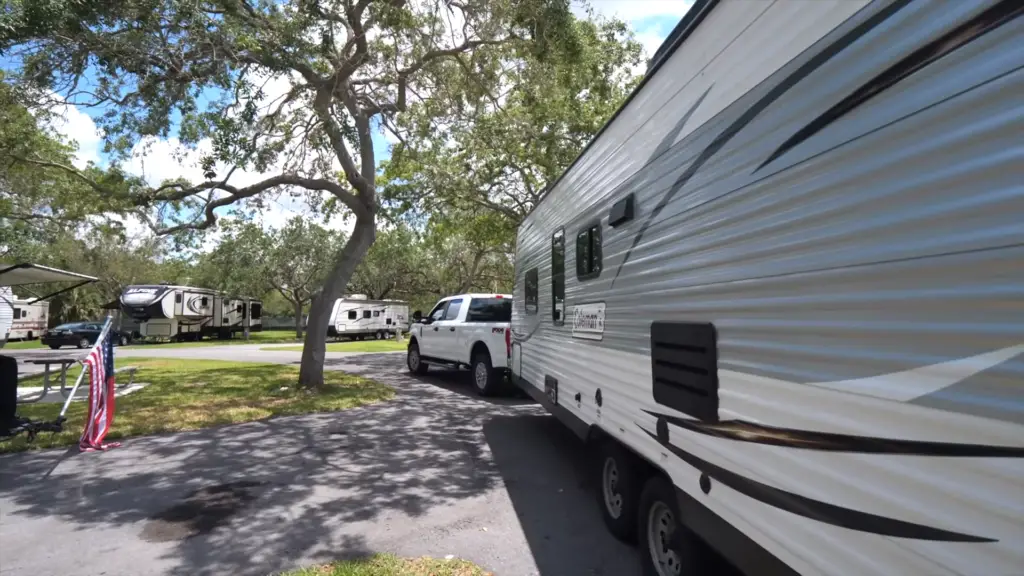
Can I live in an RV on my own property in Florida?
Yes, you can! In Florida, you are allowed to live in an RV on your own property as long as you meet certain requirements. For example, your RV must be licensed and insured, and it must have a working bathroom and kitchen. Additionally, you will need to hook up your RV to utilities such as water, sewer, and electricity. If you can meet all of these requirements, then you can absolutely live in an RV on your own property in Florida! [2]
HOA RV Parking Rules
If you live in a neighborhood with an HOA, you will need to check the RV parking rules before you move in. Some HOAs have strict rules about where RVs can be parked, and they may even require that RVs be stored in a certain area. However, other HOAs are more lenient and will allow RVs to be parked in driveways or on the street.
Can children live and travel in an RV in Florida?
Yes, children can absolutely live and travel in an RV in Florida! In fact, many families choose to do this because it allows them to spend more time together while exploring new places. If you are considering RVing with your family, there are a few things you should keep in mind. First, you will need to make sure that your RV is big enough to accommodate everyone comfortably. Additionally, you will need to plan your route carefully so that you can avoid crowded areas and find plenty of activities for your kids to enjoy. But if you can manage all of that, then RVing with your family can be a great way to bond and create lasting memories! [4]
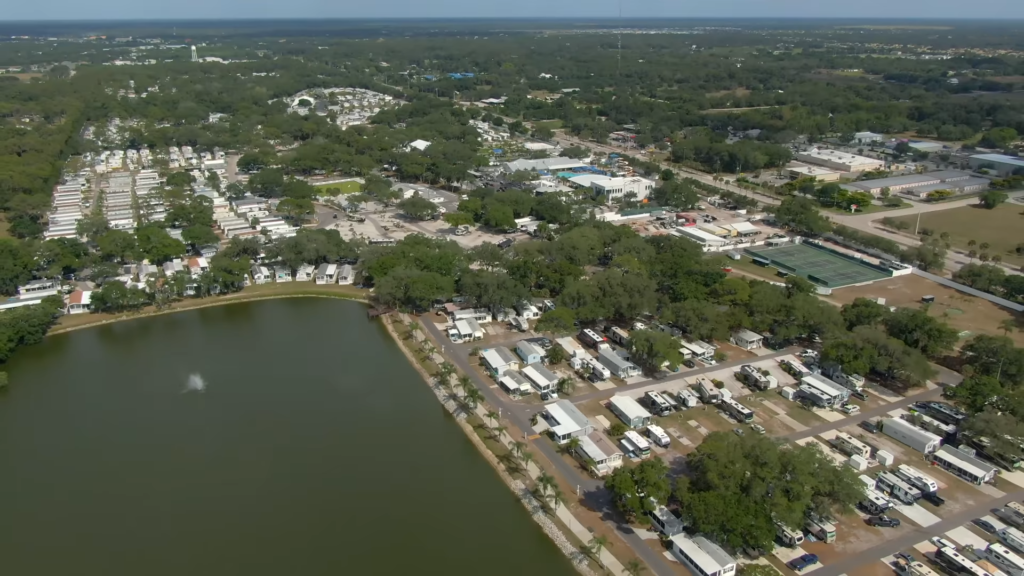
RV Life in Florida, how does it work?
RV life in Florida can be a great experience! There are so many places to explore and the weather is perfect for spending time outdoors. However, there are some things you need to keep in mind before you make the switch to RV living. For example, you will need to make sure that your RV is licensed and insured, and you will need to hook it up to utilities such as water, sewer, and electricity. Additionally, you will need to check with your HOA (if applicable) about any RV parking restrictions that may be in place. But if you can manage all of that, then RVing can be a great way to live in Florida!
Is It Legal To Live In An RV?
There’s no doubt that Florida is a great state to live in. The weather is warm, the beaches are beautiful, and there’s always something to do. But what about living in an RV? Can you really live in an RV full time in Florida?
The answer is yes, you can absolutely live in an RV full time in Florida. In fact, there are many people who do just that. There are even entire communities of people who live in RVs and travel around the country together.
Many people choose to live in Recreational Vehicles (RVs) full time in Florida. The state’s warm weather and beautiful beaches make it an attractive destination for those looking for an alternative lifestyle. However, there are a few things potential residents should take into consideration before making the switch to full-time RV living.
RVs must be properly registered and insured in Florida. In addition, RVers will need to find a place to park their vehicle. Some people choose to rent space in a campground or RV park, while others opt to live on their own property. [5]
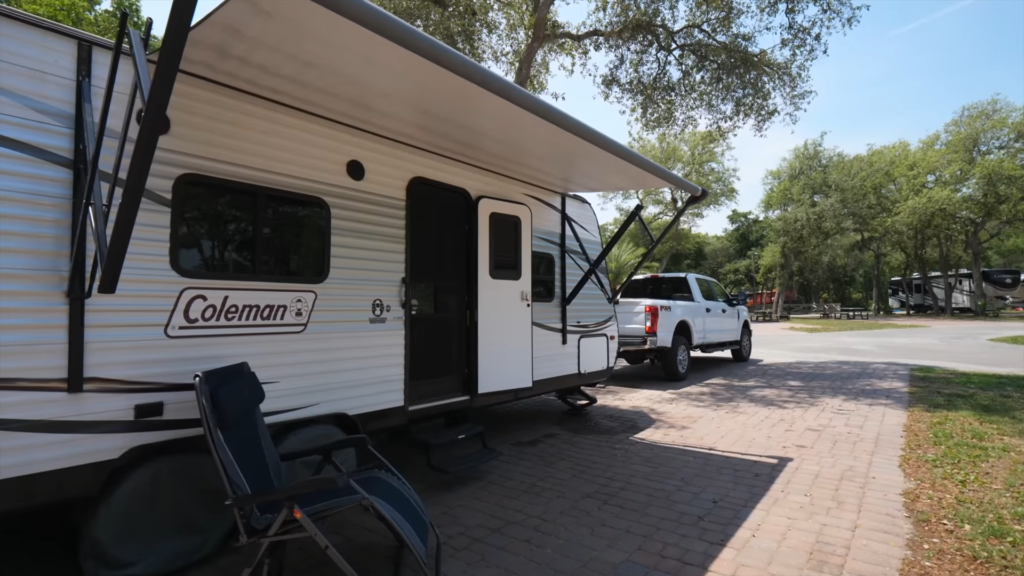
Bad weather is something all Floridians must be prepared for, whether they live in an RV or not.
Does Every State In The US Allow You To Live In An RV On Your Property?
No, every state in the US does not allow you to live in an RV on your property. Each state has its own laws and regulations regarding RV living, so it’s important to do your research before making the move. For example, some states require RVs to be licensed as vehicles, while others consider them to be homes and subject to different rules. Furthermore, certain jurisdictions have limitations on where RVs may be parked, so you should verify with your municipality before relocating in. By researching and planning ahead, you can find a state that will allow you to live in your RV on your own property!
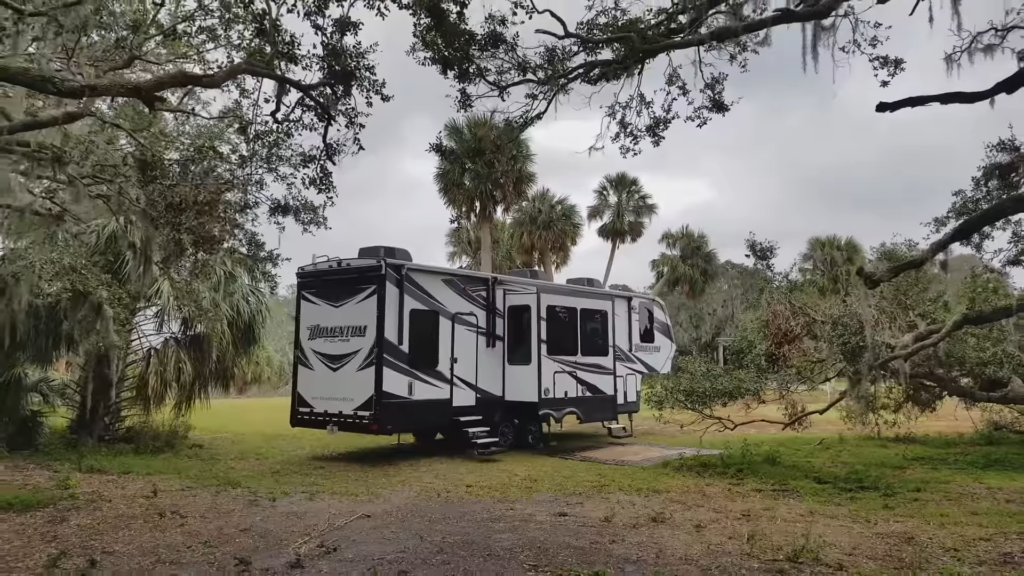
RV life in Florida may be an amazing experience. The weather is warm, the beaches are gorgeous, and there are plenty of things to keep you occupied. [6]
Which States Are The Most RV Friendly?
There are a few states that stand out as being particularly RV friendly. For example, Texas has a large number of RV parks and campgrounds, and many of them offer full hookups with water, sewer, and electricity. Additionally, Florida and Arizona both have a lot of sunshine and warm weather, making them popular destinations for RVers. And finally, Oregon has no sales tax on RVs, which can save you a significant amount of money if you’re looking to purchase an RV. But really, any state can be RV friendly if you take the time to do your research and plan ahead! [7], [8]
Which States Aren’t RV Friendly?
There are a few states that have laws and regulations that make RV living more difficult. For example, California has strict emissions standards for RVs, so you will need to make sure your RV is compliant before moving there. Additionally, New York City does not allow overnight parking of RVs, so if you’re looking to live in an RV in NYC, you will need to find a different arrangement. And finally, Alaska has a shorter camping season than other states due to its cold climate, so you will need to plan ahead if you want to live in an RV in Alaska. But overall, most states are RV friendly!
Do Neighborhoods Allow RV Living?
It depends on the neighborhood. Some neighborhoods have HOA rules that do not allow RV living, so you would need to check with your HOA before moving in. Additionally, some municipalities have zoning laws that restrict where RVs can be parked, so you would need to check with your local municipality before moving in. But if you take the time to do your research and plan ahead, then you should be able to find a neighborhood that allows RV living!
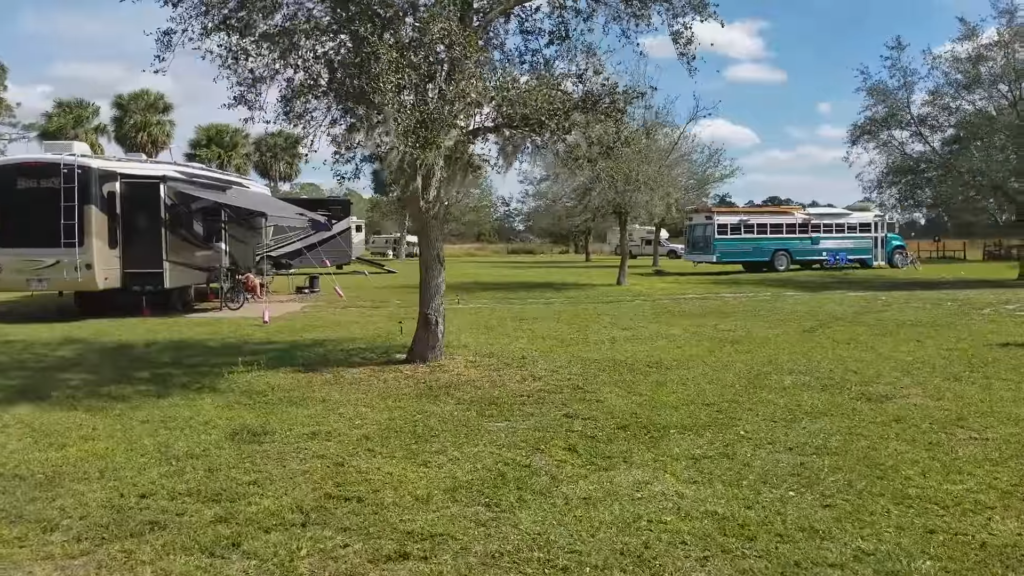
What Address Do You Use If You Live In An RV?
If you live in an RV, you can use your home address, your mailing address, or a post office box. Additionally, some people choose to use a mail forwarding service, which will forward your mail to your current location. But really, any address can be used as long as it is accessible to you!
FAQ
Can I Live In An RV Park?
Yes! In fact, many people choose to live in RV parks because they offer a sense of community and often have amenities like swimming pools, laundry facilities, and recreation rooms. Additionally, most RV parks allow pets, so you can bring your furry friends along for the ride!
If you’re considering living in an RV park, there are a few things to keep in mind. First of all, make sure to do your research and find an RV park that meets your needs. Additionally, be aware that some RV parks have age restrictions, so if you’re over 55 or under 21, you may not be able to live there. And finally, remember that living in an RV park means sharing common areas with your neighbors, so it’s important to be respectful of their space and noise levels. [10]
But overall, living in an RV park can be a great experience! You’ll get to meet new people and enjoy the amenities that the park has to offer. And if you take the time to find the right RV park for you, then you’re sure to have a great experience!
How Much Does It Cost To Live In An RV Park?
The cost of living in an RV park varies depending on the park and its location.
If you’re considering living in an RV park, be sure to do your research and find one that meets your needs. Additionally, remember that the cost of living in an RV park varies depending on the park and its location. But if you take the time to find the right RV park for you, then you’re sure to have a great experience!
Living in an RV has its challenges but can be a great experience. You’ll get to meet new people and see new places. And, with a little bit of planning and research, you should be able to find a state that allows you to live in your RV on your property! Once you do, you’ll be able to enjoy all the benefits of this unique lifestyle!
What Are The Pros Of RV Living?
There are many reasons why people choose to live in RVs full-time. For some, it’s the freedom and flexibility that comes with the nomadic lifestyle. Others enjoy being closer to nature, and love the simplicity of living in a smaller space. And then there are those who appreciate the cost savings that come with RV living – after all, you don’t need to pay for rent or a mortgage when you live in an RV!
Whatever your reasons for considering RV living, there are definitely some pros to consider. Let’s take a look at a few of them:
- You can travel wherever you want: One of the best things about RV living is that it gives you the freedom to travel wherever you want. If you get tired of one location, you can simply pack up and move to another. This is the perfect solution for those who have wanderlust or those who like to change up their surroundings frequently.
- You’re closer to nature: For many people, RV living is a way to connect with nature in a more intimate way. When you live in an RV, you’re typically surrounded by beautiful scenery – whether it’s mountains, forests, or beaches. And since RVs are smaller than traditional homes, they have a much smaller footprint and cause less damage to the environment.
- You save money: As we mentioned before, one of the biggest benefits of RV living is that it can save you a lot of money. You don’t have to worry about paying for rent or a mortgage, and your utility bills will be much lower since RVs are more energy-efficient than traditional homes. Plus, you can save even more money by cooking at home instead of eating out all the time.
- You live a simpler life: For some people, RV living is a way to simplify their lives and get rid of unnecessary possessions. When you live in such a small space, you quickly realize that you don’t need as much stuff as you thought – which can be very liberating! This simplification can lead to a less stressful and more enjoyable lifestyle overall.
As you can see, there are many reasons why RV living might be a good fit for you. If you’re considering this lifestyle, be sure to do your research and weigh the pros and cons carefully to see if it’s right for you.
Is Living In An RV Safe?
One of the biggest concerns people have about RV living is whether or not it’s safe. After all, RVs are much smaller than traditional homes, and they’re often located in remote areas – so it’s understandable to be worried about safety.
However, there are actually many ways to make your RV safe and secure. For starters, you can install security features like alarms and cameras. You can also join an RV camping club, which will give you access to safe and reputable campgrounds. And of course, you can always practice common sense safety measures like keeping your doors locked and being aware of your surroundings.
In general, living in an RV is no more dangerous than living in a traditional home – as long as you take the necessary precautions. So if you’re worried about safety, just remember to use common sense and take some extra measures to protect yourself and your belongings.
Useful Video: How to RV Florida // Top 10 things you need to know
Conclusion
So, can you live in an RV full-time in Florida? The answer is yes, but it’s not as easy as just pulling up stakes and hitting the road. There are a few things to consider before making the leap to full-time RV living, like where you will park your rig, whether or not you have access to necessary amenities, and how much money you plan on spending each month. But if you take the time to do your research and make a solid plan, living in an RV can be a great way to see the country (or world) while maintaining some semblance of home stability. Have you ever considered going full-time RVing? If so, what’s stopping you?
References
- https://www.visitflorida.com/travel-ideas/articles/outdoors-nature-top-10-florida-rv-parks-campgrounds/
- https://www.rvrank.com/post/florida-counties-allow-rv-living
- https://justdownsize.com/hoa-rv-parking-rules/
- https://www.fulltimefamilies.com/how-to-become-full-time-rv-family/
- https://magruderagency.com/florida-rv-insurance-requirements-what-you-need-to-know/
- https://vehq.com/states-allow-you-to-live-in-rv-on-property/
- https://rvlife.com/best-states-for-full-time-rver-domiciles/
- https://rvshare.com/blog/what-state-has-no-sales-tax-on-rvs/
- https://letsrv.com/how-full-time-rvers-get-mail/
- https://www.technomadia.com/2016/03/can-you-stay-in-55-rv-parks-if-youre-under-55/
- https://www.rvingknowhow.com/how-much-does-it-cost-to-live-in-an-rv-park/

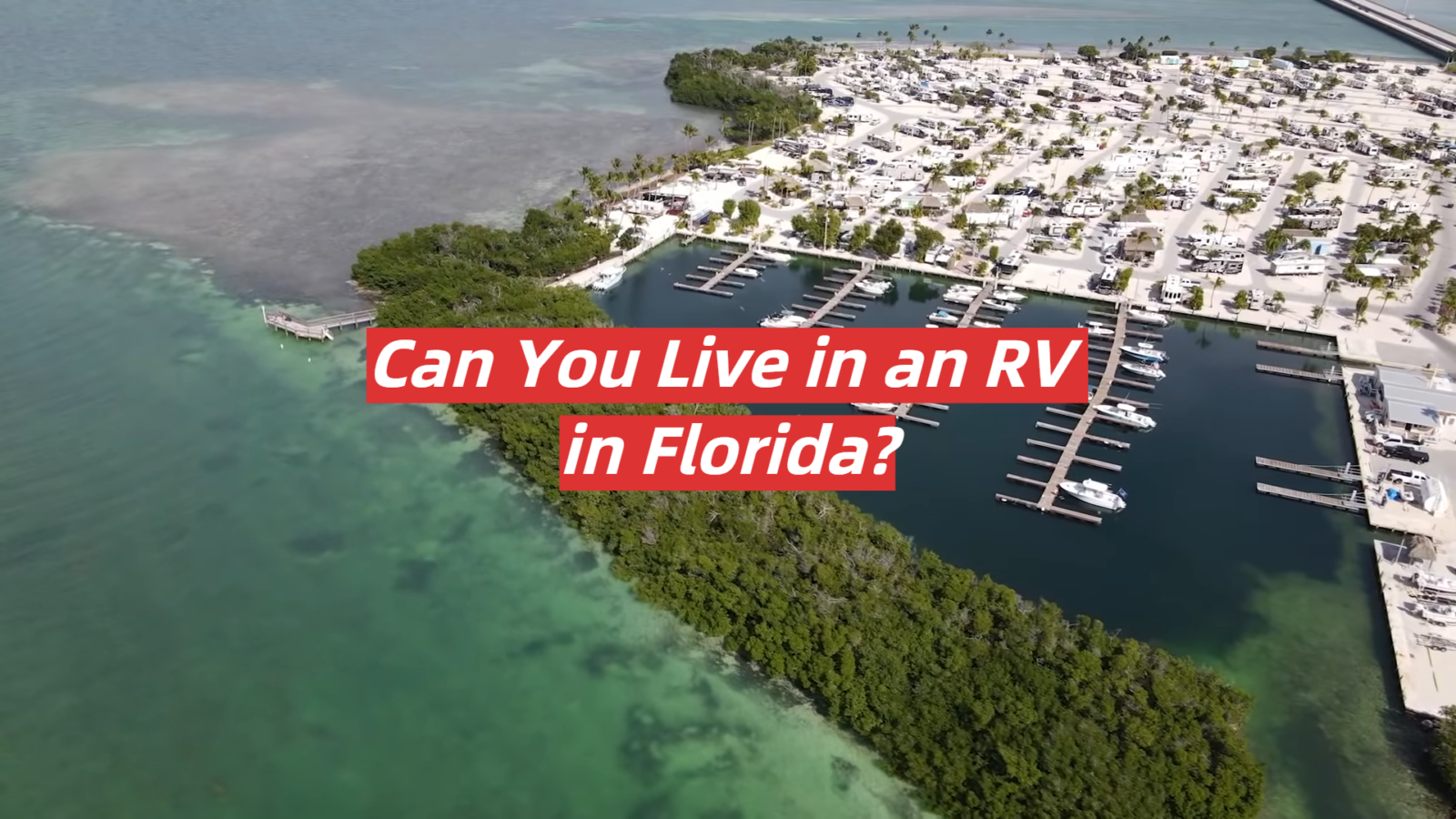

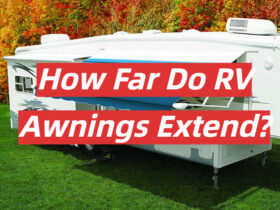
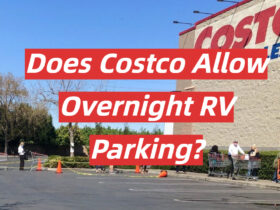
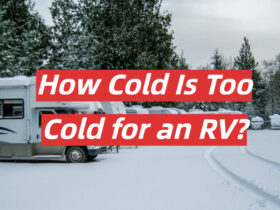
Leave a Reply